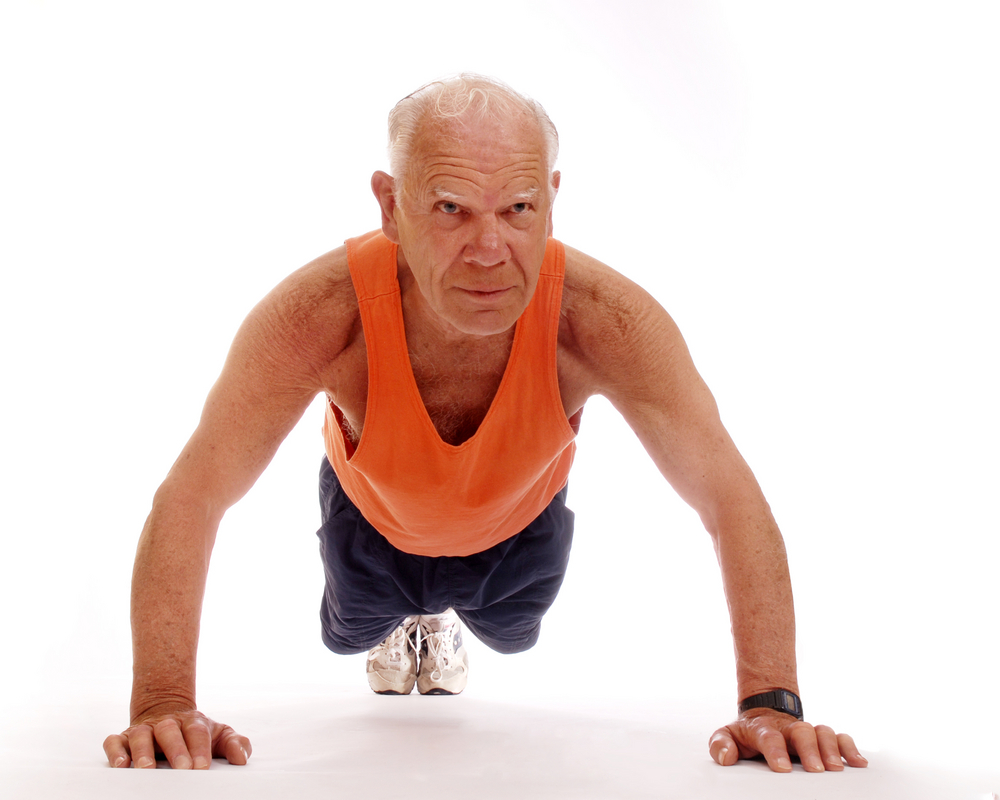I think it’s probably true to say that the older people get, the less they believe that making some supposedly healthy change to their lifestyle will make a significant difference to their health and wellbeing. If you’ve eaten a particular way for 80 years, I reckon it can be hard for some people to image eating a different way is going to matter much in the grand scheme of things. Similarly with exercise.
I don’t deny that, on the whole, the responses one sees to diet and lifestyle change in, say, 80-year-olds are, overall, slower than those seen in a bunch of 18-year-olds. However, I also know that very significant benefits can be had in the elderly with the right approach. I was thinking about this while reading a study published this week which tested the impact of exercise in a group of individuals aged 61-89, some of whom were officially described a ‘frail’ [1]. Half of the group engaged in regular exercise, while the other half did not.
The exercise programme consisted of 1-hour sessions, three times a week for a total of 12 weeks. Each session included 10 minutes of warm-up exercises (stretching and balancing), 10–30 minutes of aerobic exercise (using treadmills, recumbent bikes and elliptical machines), 10 minutes of strength training, rounded off with 10 minutes of cool down exercises. The intensity and duration of the aerobic exercises were increased over time in response to the participants perceived exertion.
Those who engaged in the exercise programme showed significant improvement in physical capacity (functional capacity and physical endurance), cognitive functioning and quality of life physical health). Benefits were seen in frail and non-frail participants alike. The conclusion from the authors was that “Physical exercise training leads to improved cognitive functioning and psychological well-being in frail older adults.”
This is an encouraging finding I think, but I wonder how many older individuals, especially frail ones, will have access to regular group exercise sessions. My sense is that any investment made in this area would pay back handsomely in terms of improved health and wellbeing. It’s probably never too early to incorporate some physical exercise into one’s life. This latest research suggests that it’s probably never too late, either.
References:
1. Langlois F, et al. Benefits of Physical Exercise Training on Cognition and Quality of Life in Frail Older Adults. J Gerontol B Psychol Sci Soc Sci. 2012 Aug 28. [Epub ahead of print]





I’d be willing to bet that the results would have been far better if the strength training was increased and the cardio was replaced with HIIT. The physiological and sports medicine journals have known this for years.
I’m 71 and I weight train and do 100 yard sprints twice a week. And for those who will immediately protest, HIIT doesn’t have to involve sprinting – just fairly intense intervals of effort. For some, this could involve walking in a pool.
Aged 64 I can confirm improved performance after joining the local gym and a Sunday running group in the park.
I was also keen to confirm an earlier blog advising that muscle growth will still occur for oldies using weights. It does!
Sheepdip.
I agree. I really push my elderly patients to participate in a supervised exercise program, especially weight training. Some studies have also suggested that taking vitamin D supplements helps to reduce falls in frail, elderly individuals.
I totally agree. Just because you get older, it shouldn’t automatically mean it’s downhill from there. At my Paleo Camps, we’ve had people in their 50s & 60s wanting to lose weight, build muscle, tone, be stronger and healthier.
I started going to a Pilates studio following a knee op 11 years ago and have been going ever since. Now aged 67, I’m one of the younger people there and find myself exercising with people in their 80s and 90s, none of whom look their age, and all of us are very flexible and strong. I combine the weekly sessions with a lot of walking on other days and that seems to be an excellent way of keeping fit.
I work as a volunteer in health classes and I will certainly agree that anything that improves flexibility and increases the range of movement in the elderly is a very good thing. It enables them to reach higher shelves, lift bigger weights, improves balance etcetra. It also enables them to have a better quality of life hopefully without hospitalisation.
Every broken hip that can be prevented saves the NHS around £15,000, So preventative exercise is highly cost effective.
Pete